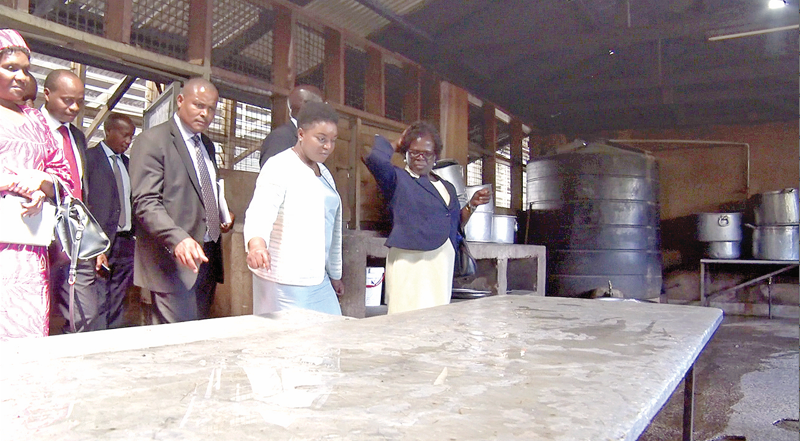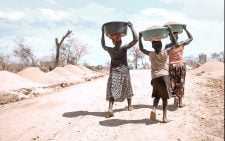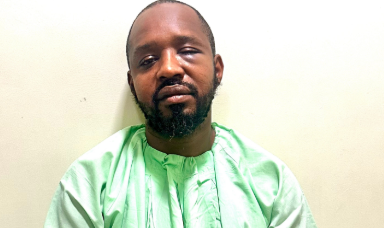Students deaths lift lid on state of health in schools

The death of three students and a teacher at Mukumu Girls High School in Kakamega has sent shockwaves among parents and exposed lapses in the healthcare of students in schools countrywide.
A spot check by People Daily found out that many schools are ill-prepared to deal with student illness, having not hired medical workers by Ministry of Education rules and regulations.
Only top national schools, such as Starehe in Nairobi have in-house clinics. Other schools, particularly in rural areas, have to make do with matrons who have no medicare training.
Despite students spending most of the year in school, they are treated to poorly equipped sanatoriums, some run by volunteer teachers or staff who mostly prescribe painkillers and anti-acids.
Only when cases become serious or require hospitalisation are parents involved, mostly to be asked to collect their ailing child either from school or hospital.
By that time, some of the cases are in dire need of specialised medical attention necessitating a hospital transfer. Such cases leave parents in a state of anxiety every time they get a call from school involving a medical case.
“These incidents have really shocked parents and other stakeholders because it appears that our children are neglected in some schools,” said Silas Obuhatsa, chairman of the National Parents Association.
“How safe are our children in boarding schools? At what stage should parents be informed about what has befallen their children? Do the school administrations listen to grievances by the learners, and if so, do they act?”
Laura Achieng, a Mombasa based teacher recalled how her younger sister died in school. “My sister Purity was at Minara Academy in Muhoroni within Kisumu. I think it was on a Wednesday, when she called my father to inform him that she was unwell. She had complained of a minor headache… They were about to close school for the end of term and my father advised her to get permission to allow her to return home and get medical attention,” she said.
Condition worsened
She later learned that her sister’s request to be released from school was not granted. Five days after her sister’s call to her father, Laura received a call from him. The school had notified him that the girl’s condition had worsened and she was being taken to a hospital.
“The turn of events was just shocking because the family had made follow up calls to find out how she was doing,” Laura told PD. All that the student had been given at the school were painkillers. “That was on Saturday before my dad called two days later to tell me that Purity was referred to Jaramogi Oginga Odinga Teaching & Referral Hospital in Kisumu.”
To her family’s shock, Purity was declared dead shortly after arriving at the referral hospital on November 15, last year.
“My dad told me that when they reached the hospital, she was hardly breathing. The medics tried their best to resuscitate her by supporting her with oxygen and everything but in the process she breathed her last,” Laura said. “We don’t understand what really happened because she had told the school that she was unwell. Why did the school wait until her condition worsened for them to react?”
Five months later, Purity’s family is still struggling to come to terms with her death. For Laura, the latest development in Mukumu only brings back memories of the traumatising experience of losing a loved one who fell ill at school and died before she could get medical attention.
But Mukumu Girls is not an isolated case. Similar cases of students falling seriously ill have been reported at Butere Boys School and Makhokho School.
Danson Ogutu, a Mombasa-based parent with a child schooling in western Kenya said reports about the outbreak at Mukumu Girls have been unsettling to every parent with a child in a boarding school.Unsettling news
Shortly after hearing reports about the illnesses at Mukumu Girls, he called his daughter’s school just to find out whether similar illnesses had been reported at the institution. His family was worried because another outbreak had been reported in Butere Boys in the same county where students exhibited cholera-like symptoms, including vomiting and diarrhea.
“We became even more restless and kept on calling the school just to understand what was going on. Luckily, the administration of my daughter’s school is very cooperative… Whenever a child falls sick the parent is immediately informed and the school nurse further calls to inquire about the type of drugs they have been using so that they understand the history. As a rule, every school is required to have a supply of clean water to avoid cases of waterborne diseases. All boarding schools must also have a mini medical facility equipped with necessary drugs and a standby nurse to assess students in case of any medical emergency. And where a child falls ill, it is the duty of the school to inform the learner’s parents.
On Friday last week, the National Assembly Health Committee faulted the decision to close Mukumu Girls and Butere Boys schools following the outbreak, saying this could expose the public to the danger of contracting the infection from the learners who had been sent home.
“Whenever there is a disease outbreak, the first responsive measure is to come up with a containment measure. Therefore, the first response could have been to declare the schools as quarantined as they embark on conducting tests, isolate and treat cases without exposing the public to risk. If you send the learners home, then chances are those infected could spread the infection,” said the committee’s chairperson, Dr Robert Pukose, while in Mombasa.
Limited resources
Interviews with parents pointed to another problem that could be to blame for the escalation of the cases.
“At Mukumu Girls, for instance, parents rarely interact with their children even when they attend events at the school,” said Wycliffe Khabuchi whose daughter is among those who died on Wednesday last week.
“The girls can complain to their parents while at home but you can never dare raise the issues with the management because your daughter will be unfairly targeted”.
Some parents said the school had more students than it could handle, with the over 1,500 girls forced to share the limited resources including water, food, playground and dormitories. This is likely to have made a bad situation worse.
The Kenya School Health Policy provides guidelines on prevention of and interventions to be taken against various disease outbreaks in schools.
The policy seeks to enhance coordination in the planning, designing and implementation of sustainable quality health interventions in basic education levels in Kenya.
With schools closing this week, parents will get three weeks of respite as they monitor the health of their children. Schools should also be challenged to audit their sanitation systems and take remedial areas where necessary.
Reporting by Reuben Mwambingu, Mathew Ndung’u and Denis Lumiti










